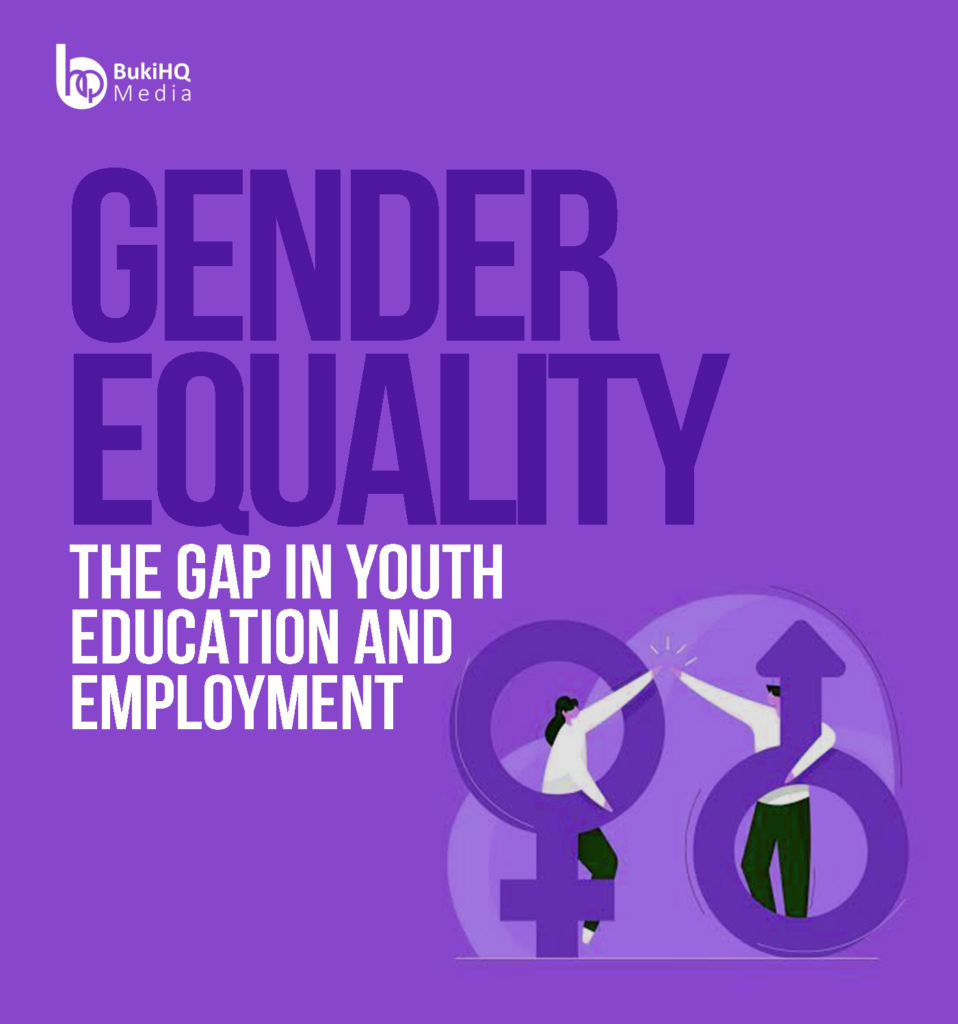
Research reveals that there are 1.8 billion young people aged 10-24 in the world—the largest youth population ever. Of these, 600 million are girls and young women. Across the world, young women continue to face gender-based discrimination, marginalization and violence, including unequal access to education and opportunities for leadership and participation.
The foundations for gender and youth employment are strongly determined in equal access to education for girls and boys. Good quality education remains a key pathway to increasing women’s opportunities and to educate a woman is to educate families and societies. Without quality education, the chances of getting decent jobs are extremely low.
In some cultures, however, when families have limited resources, they may feel they have to choose between educating their sons or daughters, and the daughters tend to be the first to be excluded. The literacy gap between young men and young women appears to be widening in Africa and Asia, not only is the level of education achieved but the quality and relevance of education and training are important. Indirect discrimination against girls results in stereotyping them as less interested or capable of gaining a quality education.
Investments in the lives of the youth are underlined as being particularly important for girls because they have very different trajectories from boys. Gender differences emerge sharply with the onset of puberty, signalling the potential of pregnancy and leading to concerns about protecting girls in some societies, sometimes to the point of overly restricting them. Female education is closely correlated with smaller family sizes, more decision-making responsibility, and higher income. In general, however, young women have even more difficulties finding work than young men, even where young women’s education is higher than men’s.
Even though there are countries and regions where unemployment is lower for young women than for young men, this often only means that women do not even try to find a job but leave the labour market, altogether discouraged. When they do find a job, it is often lower-paid and in the informal economy, in unprotected low-skill jobs which imply greater job insecurity, as well as lack of access to training, social protection and other resources, making them comparatively more vulnerable to poverty and marginalization.
It follows that labour force participation rates for young women are lower than for young men. This gap mainly reflects differing cultural traditions and the lack of opportunities for women to combine work and family duties. This is true not only in the developing world but also in the industrialized world. The lower value placed on women’s economic contributions and prevailing views that women only generate second or third incomes in households contribute to this reality. They may face discrimination because of the perception that as soon as they marry and have children, they will be less productive or will leave their jobs.
Many young women may become despondent and wonder whether academic achievement actually leads to access to employment commensurate with their qualifications. Gender discrimination, cultural traditions and the lack of opportunities often leave women with traditional unpaid, family-based work. This is equally prevalent among rural youth. It is in view of these challenges against women that we choose to promote gender equality in society to allow for equal and better opportunities for the female youth in every society.
“Young people are on the frontlines of the struggle to build a better future for all. The COVID-19 pandemic has highlighted the dire need for the kind of transformational change they seek – and young people must be full partners in that effort.” ~ UN Secretary-General Antonio Guterres. We at BukiHQ Media believe that every youth including the female youth of every society has the inherent capacity to make the world a better home. #BukiHQMediaForHer
Written by Chisom Ezeneche

